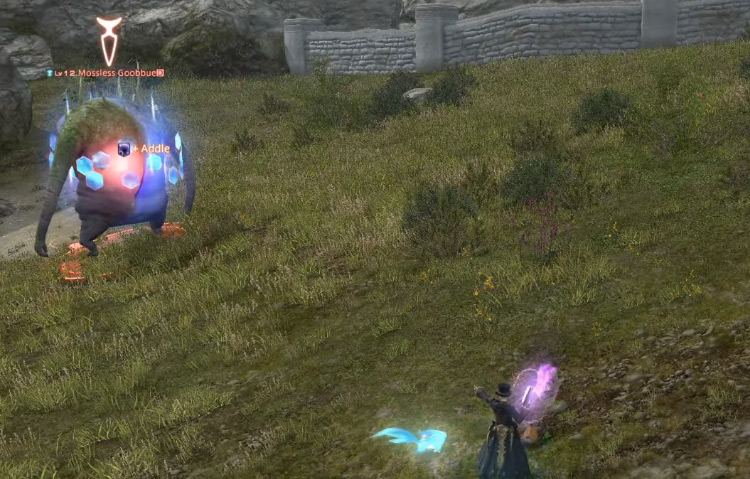But you’ll only be able to use Addle if you’re playing as a ranged magic DPS. Think of it as a temporary IQ drop for your foe – they’re suddenly ten percent less clever than they were before, and their magic is suffering for it. So let’s say you’re at the end of a dungeon. The boss is about to hit the party with a huge magical AOE, and there’s no way to get out of it – the arena is too small, or the AOE target indicator is simply too wide to avoid. Your healer is probably already preparing some spells for the group. The tank might be ready to shield squishier members of the team, and he’s probably hovering over one of his personal mitigation skills too. You cast Addle, and all of that incoming damage is nerfed by a decent margin. The tank, already bearing the brunt of the enemy assault, has a bit more HP left than expected. The healer can focus on getting everyone well again without hitting panic buttons (most of the time). The entire encounter runs smoother. This simple skill might not seem as flashy or dramatic as others. We’ve previously gone into role actions like Interject, which can prevent a skill from being used outright. We’ve also talked about how useful it can be to interrupt enemy casting with stuns. However, not everything can be stunned or interrupted – tankbusters will usually charge forwards regardless, and there’s a ton of damage sources in the game you can’t really do that much about. This is where damage mitigation comes in. I’ve written about this before in the context of tanking: popping cooldown skills to reduce the amount of incoming damage. There are other ways to mitigate, too, by debuffing the enemy as they cast. Addle reduces Intelligence and Mind, two statistics that correlate to magical damage. The effect only lasts for ten seconds, so it’s going to be very situational – you don’t just want to pop it off every time it’s off cooldown. And ten percent might not sound like an awful lot, but when you’re reducing that ten percent across an entire party, combining that with individual damage mitigators, the effect will definitely add up.
When Should I Cast Addle?
You should cast Addle when you see a boss winding up for a big magical attack that’ll hit the whole party. There’s currently no clear indicator of whether an attack is magical or physical in nature, so you’ll want to read up on the fight beforehand to pick your best moment to cast it. Keep an eye on the boss’ cast bar and wait for it to start winding up to something devastating. Then drop Addle on it, and you’ve just lowered that incoming damage with a single button press. You don’t want to use it preemptively, though, as there’s a chance Addle’s effect will run out before the enemy casts anything. Then the magical attack will hit for full effect. And casting Addle will dampen that partywide damage. Will it save lives? Probably not (and if it does, it’ll be by a thread) But it can take a bit of pressure off the healers for the party’s recovery afterwards. The slim margin of damage Addle prevents can be a real necessity in Savage/EX endgame content, but it’s not something you need to worry about if that content isn’t your priority.
Is Addle Useful For Every Boss Fight?
It’s not that there’s no point in learning when to use Addle outside of Savage/EX. Your healers will probably name their firstborn child after you if you’re using it appropriately, or at the very least give you a cookie or something. Most content just won’t be difficult enough to result in failure if you ignore the skill entirely. The difficulty will likely come from DPS checks, which rely on the party dealing a set amount of damage rather than avoiding it, or other mechanics that result in instant wipes. Back in the day, we had more options for magical damage mitigation. Apocatastasis would reduce a single party member’s magic vulnerability by 20%, and was a much better option for reducing damage to an ally. It’s been removed from the game, though, so you’ll have to make do with Addle for now! Casting Addle at the right moment might not be essential for every boss you encounter. But it can make a difference. It’s worth getting in the habit of using it for sure.
